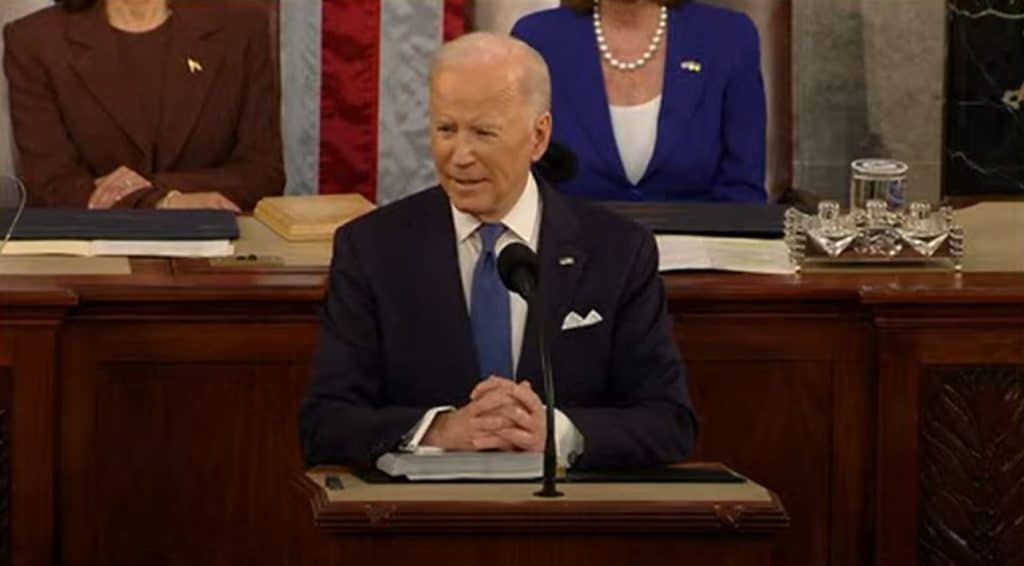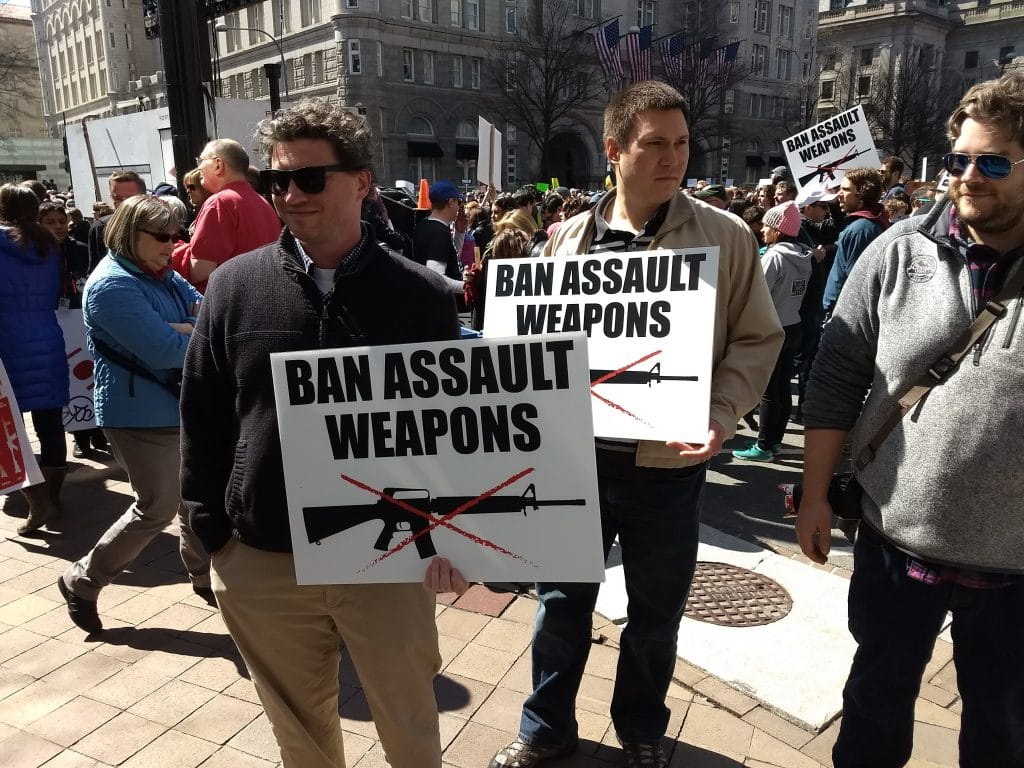We had a two-for-one in big gun news stories this week. President Biden announced a new ATF director nominee and pushed up the finalization of his “ghost gun” kit ban. Both were made public on Monday, and we’ve now had the week to digest the causes and likely effects of the combined moves.
Fascinatingly, the gun-control groups have won a bigger victory than it seems on the surface. Yes, they got what the nominee and rule change they wanted. But they got it after a public pressure campaign against the President which shows just how influential they are inside this administration.
That’s all the more true since these moves put Biden and his part at significant risk. There’s no guarantee the new ATF nominee fairs any better than the previous one who failed. His nomination could stretch into the summer and the new “ghost gun” rule could elevate the issue of guns even further.
As Contributing Writer Jake Fogleman discusses below, it’s likely to turn out poorly for Democrats if gun policy does become a top concern going into the midterms.
Plus, Cody Wilson joins the podcast to dissect and react to the “ghost gun” kit ban.

Analysis: Biden’s Aggression Elevates Gun Politics Before the Election [Member Exclusive]
By Jake Fogleman
Will gun control become a top election issue?
It didn’t seem likely for a while. The high visibility of pressing concerns like 40-year high inflation rates, a burgeoning humanitarian crisis in the ongoing war in Ukraine, and domestic culture warring over education policy have been at the top of most Americans’ minds.
But actions taken by President Joe Biden this week may very well have foisted the issue of guns back onto the radar of voters going into November’s midterm elections. Largely at the behest of a sustained pressure campaign from gun-control groups, President Biden announced his new nominee to head the ATF on Monday. He also announced the accelerated release of the final ATF rule banning “ghost gun” kits.
Either action taken on its own would be enough to raise the political stakes. Gun control by executive fiat is a policy route that draws the ire of gun owners and energizes gun-control advocates. But combining that announcement with the another attempt to successfully confirm a permanent ATF director takes the political stakes up a notch.
Getting a permanent ATF director confirmed is a tough battle in any political environment, as evidenced by the fact that only one director has been confirmed since 2006. The Trump administration was not even successful in confirming a nominee despite Republican control of the Senate at the time.
But the failure of David Chipman’s nomination to the ATF director role was perhaps the most high-profile political loss for Biden thus far in an administration that has seen its fair share of contentious confirmation battles. The fact that the Biden administration would return to that well after burning so much political capital in vain last time around suggests a commitment to making gun control a key selling point for his party.
Dettelbach may not have the same political baggage as his ill-fated predecessor. Chipman was a professional gun-control advocate employed by Giffords prior to his nomination. He also had a history of making controversial and derisive statements about the industry and gun owners he would be in charge of regulating at the ATF. Plus, serious concerns about his character while working as a federal agent were uncovered after his nomination.
Dettelbach supports many of the same gun restrictions Chipman did. He was endorsed by the gun-control groups during his failed 2018 AG campaign, but has never directly worked for them like Chipman did. He has used heated rhetoric to question the integrity of Ohio’s elections. But much of his background is still unexplored to this point.
The renewed push for a permanent ATF director is likely part of the White House’s attempt to dissuade voter concerns over rising crime. Dettelbach’s background as a prosecutor and the bipartisan support he has received thus far from other prosecutors and law enforcement officials provides some support for that idea.
However, Dettelbach is on record as supporting contentious gun-control policies like “assault weapons” bans and universal background check mandates. His backing of those policies will undoubtedly raise the salience of gun politics alongside crime concerns in his upcoming confirmation battle.
The president is taking a political risk by announcing another gun-control advocate to lead the agency charged with regulating the firearms industry while releasing controversial new gun regulations. It isn’t immediately clear this nominee will fare better than the last in terms of securing the support of moderates in the Senate, and another tense confirmation fight this close to election season could be a political liability for Democrats. At the same time, his final “ghost gun” kit ban has already mobilized Republican political opposition, and the forthcoming pistol brace ban–which will directly impact millions of Americans–will only add more fuel to that fire.
The President’s handling of gun policy has been underwater for nearly a year. Now, Democrats as a party are polling behind Republicans on guns too.
As election season draws nearer, it’s unclear how enthusiastic moderate Democrats from vulnerable states will be to vote for an ATF candidate with an established history of support for gun restrictions.
But it is clear that the President has set in motion the potential for gun politics to be a motivating issue for voters just months away from a midterm election poised to deliver serious Republican gains. How will voters react?
Podcast: Ghost Gunner’s Cody Wilson Responds to Biden’s ‘Ghost Gun’ Kit Ban [Member Early Access]
By Stephen Gutowski
President Biden went hard after “ghost guns” and the companies that make them this week. So, on this episode, we’ve got one of the most prominent men who is squarely in his sights: Defense Distributed’s Cody Wilson.
Wilson is a pioneer in 3D-printed guns having developed the first prototype called The Liberator. His Ghost Gunner mini-CNC machine is among the popular ways to finish the unfinished gun receivers commonly available on the market.
As such, he read through the entire 364-page final guidance on the new ban from the ATF. We discuss the ins and out of what exactly is illegal now, how that will impact the firearms industry, and some of the surprises in the final regulation.
Wilson says he feels the regulations are unjust and unconstitutional. He said he plans to file suit against the administration over the changes.
Plus, Contributing Writer Jake Fogleman and I talk about what we’ve found out about President Biden’s new ATF director nominee Steve Dettelbach.
You can listen to the show on your favorite podcasting app or by clicking here.
Video of the entire show is also available on our YouTube channel.

Analysis: Gun-Control Groups’ Pressure Campaign Against Biden Worked [Member Exclusive]
By Stephen Gutowski
Monday was a win for gun-control advocates.
After weeks of publicly criticizing President Biden over the failure of his previous ATF nominee David Chipman and the slower-than-they’d-like pace of his “ghost gun” kit ban, they had their wishes granted. The President put up another ATF nominee that gun-control groups favored and moved up the ban’s finalization.
The success comes as something of a surprise.
With the President’s gun-control agenda stalled in Congress, his executive orders tied up in the rulemaking process, and Chipman failing to capture 50 votes, his capital on guns seemed spent. Given the difficulties of finding a new ATF candidate that pleased both the gun-control groups and moderate Senate Democrats and the pressures of an election year, taking another shot at filling the position seemed politically improbable. And pushing either of his two major rule changes through faster seemed as though it would run up against the practical reality of responding to hundreds of thousands of public comments.
But the gun-control groups put public pressure on from nearly the moment Chipman’s nomination failed. The nominee himself, who still works for Giffords, went on a media tour where he directly attacked the administration for not doing more to support him. The attacks only intensified from there with March for Our Lives and Guns Down America saying Biden had failed in February.
“47,611 gun deaths into the Biden Administration, we’re urging all Americans to visit ShockMarket.org and demand that the president take the urgent executive actions he’s promised survivors in order to reduce gun violence,” the groups said. “So far, he has failed to deliver the plan that the country needs.”
These complaints often felt odd to watch from the outside. President Biden is clearly an ally of the gun-control groups, and he was already pushing Congress to pass new gun restrictions and pursuing two significant rule changes without them. And, frankly, it seems difficult for the gun-control groups to justify pinning Chipman’s failure on Biden.
Chipman was a bombastic gun-control advocate with a history of making controversial remarks and a lot of personal baggage. Most of what caused his nomination to flounder were well known before he was nominated. And, given that he literally worked directly for a gun-control group and had no direct connection to Biden, it’s very likely Chipman was selected on the advice of those groups.
So, the gun-control groups deserve more political blame for that nomination’s failure than anyone else.
But they seem to have concluded the exact opposite. And they weren’t shy about letting President Biden know it. That’s a stark contrast to how the NRA and other gun-rights groups handled former president Trump.
While the NRA occasionally publicly contradicted Trump‘s calls for new gun-control laws and other gun-rights groups filed suit against his rule banning bump stocks, gun-rights proponents were hesitant to attack him. They often preferred trying–and, to be fair, largely succeeding–behind-the-scenes tactics to dissuade Trump from pursuing new restrictions. However, Trump never rewarded that loyalty with any attempt to institute gun reforms favored by the groups through executive action or an ATF nominee they wanted, let alone two of them.
But the full-court press paid off for the gun-control groups. They got the President to spend more political capital on their interests.
Biden is taking a real risk nominating another gun-control advocate to lead the agency that regulates the gun industry. It isn’t clear he’ll get to 50 votes, and his nomination fight could stretch out to election season. That, combined with the “ghost gun” kit ban and upcoming pistol brace ban, could make guns a higher priority in the midterms, which may not work out well given how poorly the President and his party have polled on firearms in recent months.
It will be interesting to see how all of this affects the elections, but it’ll be even more interesting to see if Biden caves further to their demands. There is another ask many of the groups wants from the President: a cabinet-adjacent position dedicated to gun policy.
Will the President give in and appoint a gun-control czar?
How much more is Biden willing to do for the gun groups? They clearly haven’t worn out their welcome with him to this point. Can they get even more?
That’s it for now.
I’ll talk to you all again soon.
Thanks,
Stephen Gutowski
Founder
The Reload






